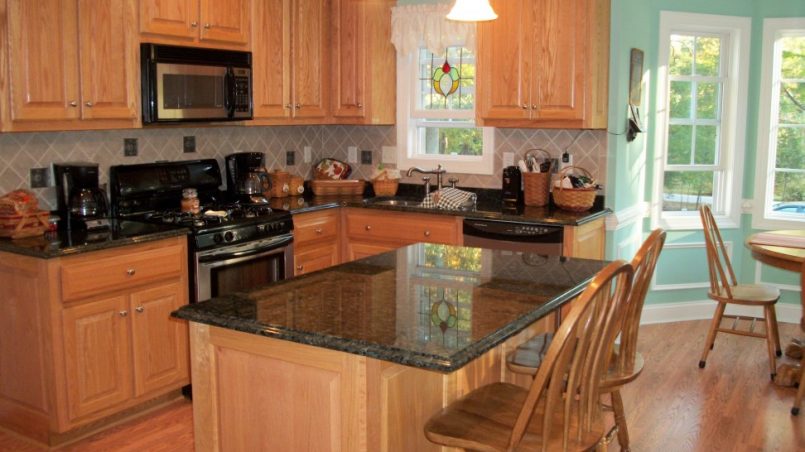1. What is a real estate counter proposal?
When two parties are negotiating the sale of a piece of real estate, it’s not uncommon for them to reach an impasse. If the buyer feels that the asking price is too high, they may submit a counter offer to the seller. This counter offer will usually be lower than the original asking price and will be based on the buyer’s assessment of the property’s true market value.
If the seller receives a counter offer, they will have to decide whether to accept it, reject it, or make a counter offer of their own. If they decide to accept the buyer’s counter offer, the sale will proceed at the new, lower price. If they reject it, the sale will usually fall through. If the seller makes a counter offer of their own, the buyer will then have to decide whether to accept or reject it. This back-and-forth can continue until both parties reach an agreement or the sale falls through.
A real estate counter offer is simply an offer from the buyer that is lower than the seller’s original asking price. The buyer may submit a counter offer for any number of reasons, but most commonly, it is because they feel that the property is overpriced. The counter offer will usually be based on the buyer’s assessment of the property’s true market value.
If the seller receives a counter offer, they will have to decide whether to accept it, reject it, or make a counter offer of their own. If they decide to accept the buyer’s counter offer, the sale will proceed at the new, lower price. If they reject it, the sale will usually fall through. If the seller makes a counter offer of their own, the buyer will then have to decide whether to accept or reject it. This back-and-forth can continue until both parties reach an agreement or the sale falls through.
A real estate counter offer is simply an offer from the buyer that is lower than the seller’s original asking price. The buyer may submit a counter offer for any number of reasons, but most commonly, it is because they feel that the property is overpriced. The counter offer will usually be based on the buyer’s assessment of the property’s true market value.
2. Why would you make a counter proposal?
If you’re selling your home, you might receive a counter offer from the buyer. This is when the buyer makes a new offer that is different from your original asking price. The buyer might ask for a lower price, a higher price, or different terms.
As the seller, you can choose to accept the counter offer, make a counter offer of your own, or reject the offer. If you accept the counter offer, the sale is typically finalized. If you make a counter offer, the buyer can either accept it, make another counter offer, or reject it.
There are a few reasons why you might want to make a counteroffer. Maybe the buyer’s offer is too low, and you want to try to negotiate a higher price. Or, the buyer might be asking for terms that aren’t favourable to you, such as a shorter escrow period. By making a counter offer, you can try to negotiate terms that are more favourable to you.
If you’re considering making a counter offer, it’s important to consult with your real estate agent. They can help you determine if a counter offer is a good idea, and they can also provide guidance on what to include in your counter offer.
3. What are some common terms in a counter proposal?
If you’re in the process of negotiating the purchase of a home, you may come across the term “counter proposal.” A counterproposal is simply an offer made by the buyer that is lower than the seller’s original asking price. The seller may then choose to accept, reject, or counter the buyer’s offer.
If you’re the buyer, you may be wondering why you would want to make a counter proposal in the first place. After all, if the seller is already asking for less than you’re willing to pay, why not just accept their offer?
There are a few reasons why you might want to make a counterproposal. First, you may feel that the seller’s asking price is still too high. Remember, the seller’s asking price is not necessarily the same as the home’s true market value. The seller may be asking for more than they’re actually willing to accept in order to leave room for negotiation.
Second, you may want to use a counter proposal as a way to show the seller that you’re serious about buying the home, but you’re not going to overpay. By making a lower offer, you’re indicating that you’re willing to walk away from the deal if the seller doesn’t meet your price. This can often be an effective way to get the seller to lower their asking price.
If you’re thinking about making a counterproposal, there are a few things you should keep in mind. First, be sure to do your research so that you have a good idea of what the home is actually worth. There’s no use in making a low offer if the home is actually worth more than the seller is asking.
Second, be prepared to walk away from the deal if the seller doesn’t accept your offer. If you’re not willing to do this, then you might as well just accept the seller’s original offer.
Finally, in your counter proposal, don’t be afraid to be creative.If you’re not sure what to offer, you can always ask the seller for a “lease with option to buy” agreement. This would allow you to lease the home for a set period of time with the option to buy it at the end of that period.
4. What are some things to consider before making a counter proposal?
If you’re thinking about making a counter proposal on a piece of real estate, there are a few things you’ll need to take into account first. Here are four things to keep in mind before making a counter proposal:
1. The current market conditions
When it comes to real estate, timing is everything. You’ll need to take a close look at the current market conditions to see if it’s a good time to make a counterproposal. Are prices on the rise or falling? Is the market competitive or a buyers’ market? By understanding the current market conditions, you’ll be in a better position to make a counterproposal that makes sense for your needs.
2. Your financial situation
Before making a counterproposal, you’ll need to take a close look at your financial situation. Can you afford the down payment and monthly payments associated with the property? Do you have the necessary funds for repairs or renovations? It’s important to make sure you’re in a good financial position before making a counter proposal, as you don’t want to get in over your head.
3. The sellers’ motivation
When making a counterproposal, it’s important to try to understand the sellers’ motivation. Are they looking to sell quickly, or are they more interested in getting the best possible price? If you can figure out what the sellers are looking for, you’ll be in a better position to make a counterproposal that meets their needs.
4. The property’s condition
Before making a counter proposal, you’ll need to take a close look at the condition of the property. Is it in need of repairs or renovations? If so, you’ll need to factor that into your offer. You don’t want to low-ball the sellers and then be stuck with a bunch of unexpected costs.
By keeping these four things in mind, you’ll be in a better position to make a counter proposal on a piece of real estate.
5. How do you make a counter proposal?
When you’re involved in a real estate transaction, there are often opportunities to make a counter proposal. This can be a counteroffer to the seller’s initial offer, or it can be a counteroffer to the buyer’s offer. In either case, making a counterproposal can be a great way to get the deal you want.
There are a few things to keep in mind when making a counterproposal. First, you need to be clear on what you’re trying to achieve. Are you trying to get a lower price? Are you trying to get the seller to pay for more of the closing costs? Or are you trying to get the buyer to move up their closing date? Once you know what you’re trying to achieve, you can craft a counterproposal that is more likely to be accepted.
It’s also important to be reasonable with your counterproposal. If you’re asking for something that is completely out of line with what the other party is expecting, then your counterproposal is likely to be rejected. However, if you make a reasonable counterproposal, then you’re more likely to get the deal you’re looking for.
Finally, don’t be afraid to walk away from the deal if the other party isn’t willing to meet your terms. If you make a reasonable counterproposal and the other party refuses to budge, the deal is probably not one you want to do anyway. Walking away from the deal now will save you a lot of headaches down the road.








